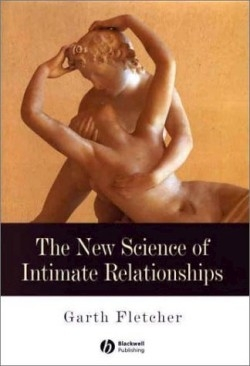The New Science of Intimate Relationships
“We control our emotions as much as they control us.” That is good news for anyone willing to accept responsibility in the most important realm of life: intimate relationships. The author, a psychologist at the University of Canterbury in Christchurch, New Zealand, offers many such jolts of provocation and insight to his readers, who include, he hopes, a lay audience as well as psychology students and professionals in a variety of disciplines.
Fletcher leaps with enthusiasm into the tangled web of social science research. Clearly a gifted teacher, he organizes dozens of theories and hundreds of research studies. The result brings evolutionary principles to bear on the complex mix of people’s genes, upbringing, surrounding culture, happenstance, and choice. After an introduction on theory, which gives emotion-including love-its due, Fletcher takes on the development of intimate relationships: how people inevitably “read minds” (reach conclusions about a partner’s feelings and motives) using their own home-grown theories; how communication has to be tempered by judgment and management; and how mate selection is an ongoing process.
“Human infants are born to bond.” Attachment and intimacy, two of the three parts of our love system, begin with birth. Sex comes later, shaped significantly by early experience as well as by biology and culture. Fletcher’s grasp of social science and research design are matched by real understanding of biology, evolution, and cultural universals and differences. He can talk about anatomy, hormones, anthropological studies of far-flung societies, history, ideology, and ethics. He takes on challenges like gender difference (often exaggerated), feminist issues, homosexuality (he offers a Darwinian explanation), and intimate violence. He wants to be helpful, and criticizes certain pop psychology books for oversimplifying what is truly complex.
Even when home-grown theories are wrong, they have effects, Fletcher points out. That is why social science in the realm of relationships is especially tricky. People’s beliefs contribute to their emotions, cognition, and behavior. By taking readers on a stimulating ride through the forests of theory and oceans of data, Fletcher will help them appreciate their own hunches and make such hunches more accurate. That is not conventional self-help-it is better. Both lay readers and academics will learn from this gifted author, and his book is bound to be a staple on college campuses, if not a general best-seller.
Disclosure: This article is not an endorsement, but a review. The publisher of this book provided free copies of the book to have their book reviewed by a professional reviewer. No fee was paid by the publisher for this review. Foreword Reviews only recommends books that we love. Foreword Magazine, Inc. is disclosing this in accordance with the Federal Trade Commission’s 16 CFR, Part 255.

